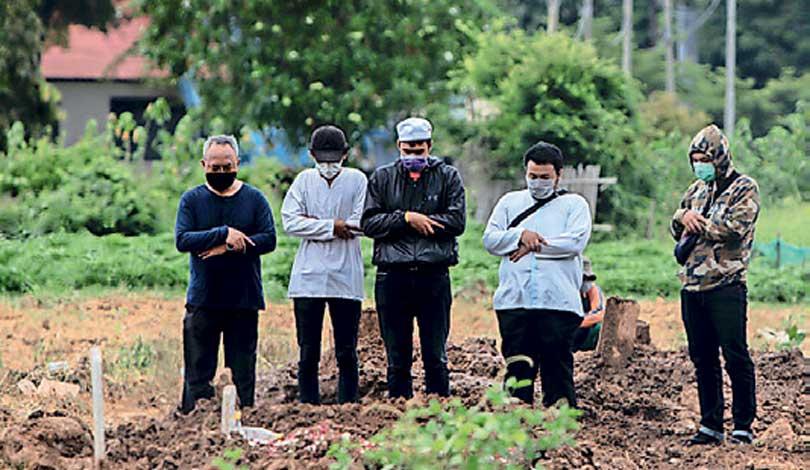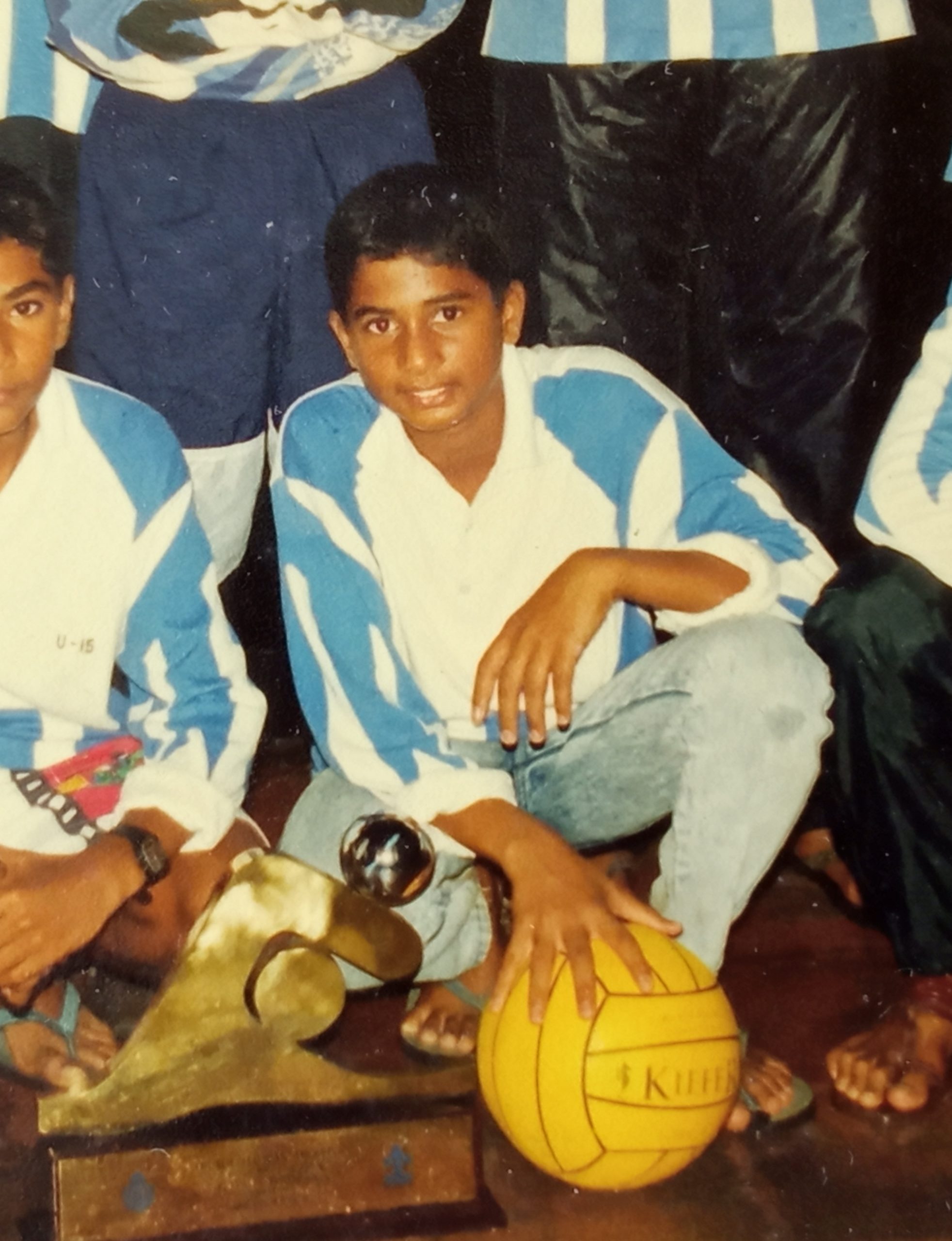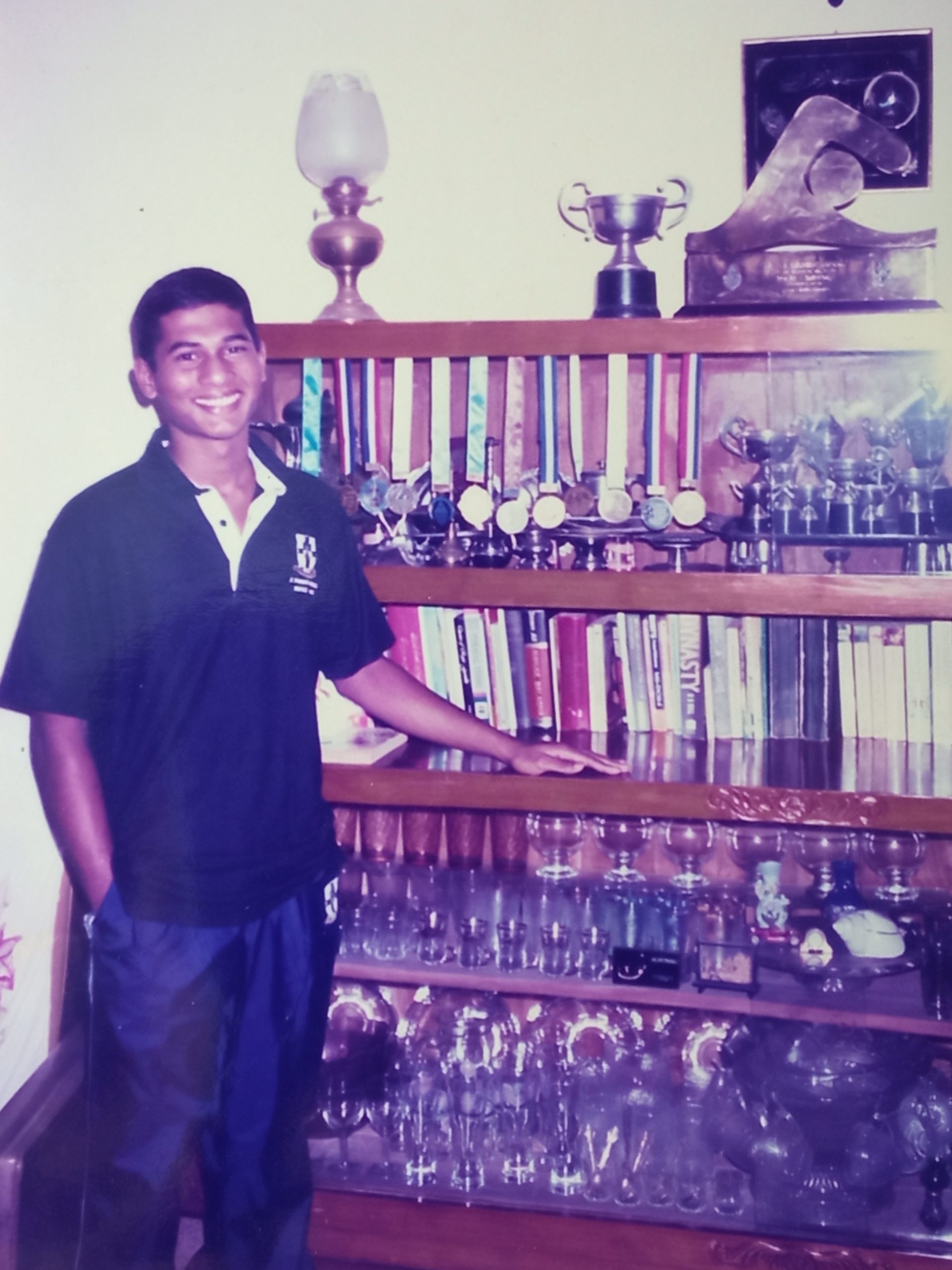![The Geneva-based International Commission of Jurists, the EU and UN Human Rights Core Group on Sri Lanka have expressed their concerns on the arbitrary arrest and detention of Hizbullah [Photo courtesy: Family]](https://www.aljazeera.com/wp-content/uploads/2020/10/WhatsApp-Image-2020-10-05-at-7.11.31-PM.jpg?resize=770%2C513)
The Geneva-based International Commission of Jurists, the EU and UN Human Rights Core Group on Sri Lanka have expressed their concerns on the arbitrary arrest and detention of Hizbullah [Photo courtesy: Family]
Why Sri Lanka jailed a Muslim lawyer without charge for 6 months
Rights groups and members of civil society have raised concerns over the continued incarceration of a Muslim lawyer in Sri Lanka, adding that his prolonged detention “had a chilling effect on anyone involved in peaceful dissent and advocacy”.
Hejaaz Hizbullah, a prominent human rights lawyer, was arrested on “terrorism” charges in April and has remained in detention without charges, with rights groups saying he has been denied due process rights.
Sri Lankan authorities said he had been detained for links to the perpetrators of the 2019 Easter Bombings, which left more than 250 people dead and injured more than 500 – the Indian Ocean island nation’s worst attack since the end of civil war in 2009. Meenakshi Ganguly, South Asia director at Human Rights Watch, said the police had not presented “any credible evidence” against Hizbullah, adding that he was denied his due process rights and kept in custody despite calls from UN experts “that prison populations must be reduced to prevent the spread of COVID-19”. The president’s spokesperson Mohan Samaranayake did not respond to Al Jazeera’s request for comment. Hizbullah, a lawyer at the Supreme Court of Sri Lanka, was arrested under the controversial Prevention of Terrorism Act (PTA), which allows the government to detain suspects without charge and or having to present them before a judge. “Even though the Gotabaya Rajapaksa administration has said that it does not want to continue its support to the Human Rights Council resolution, the Sri Lankan government remains obliged to keep its pledges, including to repeal PTA, regardless of the party that might be in power,” Ganguly added. A person can be detained for 90 days under the PTA, with the option to renew the incarceration period for another 90 days for up to 18 months. The New York-based HRW has dubbed the PTA a “draconian” law, one that the previous Sri Lankan government headed by Maithripala Sirisena pledged to revoke in a 2015 Human Rights Council resolution. Rights groups have raised concerns over shrinking space for dissent since President Gotabaya Rajapaksa – a Buddhist hardliner – took power last November on the promise to boost security in the island nation in the wake of the deadly bombings. In August, the HRW said the government of President Gotabaya has waged “a campaign of fear and intimidation against human rights activists, journalists, lawyers, and others challenging government policy”. According to Thyagi Ruwanpathiran, South Asia researcher at Amnesty International, Hizbullah’s arrest “had a chilling effect on anyone involved in peaceful dissent and advocacy, be it lawyers, human rights defenders or members of the minority Muslim community”. “There is a real fear of being targeted for your professional work where you could suffer reprisals from the state,” she told Al Jazeera. The Geneva-based International Commission of Jurists, the European Union and UN Human Rights Core Group on Sri Lanka have also expressed their concerns regarding the arbitrary arrest and detention of Hizbullah. A local magistrate court in the capital, Colombo, is hearing his case again on October 28, but activists say there is little hope of bail. ‘Pure fabrication’ Of the several accusations made against Hizbullah include his relationship with Yusuf Mohammad Ibrahim, a business owner, whose sons Inshaf and Ilham were two of the seven perpetrators of the Easter Sunday bombings. Hizbullah was Ibrahim’s lawyer. Hizbullah, along with Ibrahim, also served on the board of the Save the Pearl charity, which works with underprivileged children. Ilham also served on the board briefly in 2016 briefly, until he was asked to step down, a report by Amnesty International said. According to the human rights group, these associations with Ibrahim and Save the Pearl were being used to detain Hizbullah.
“The detention order says that Hejaaz [Hizbullah] is being investigated for allegedly ‘aiding and abetting’ the Easter Sunday bombers and for engaging in activities deemed ‘detrimental to the religious harmony among communities'”, the Amnesty report said.
Another accusation against Hizbullah is that he indirectly, through a school funded by Save the Pearl, fed “extremist” ideas and thoughts to children between the ages of 8-13, Hafeel Farisz, one of Hizbullah’s lawyers, told Al Jazeera.
The children from Al-Zuhriya Arabic College in Puttalam district were interrogated by the police for several days in April, during which they were threatened and coerced into accusing Hizbullah of providing “terrorist” training, said the lawyer.
Farisz said the children described accusations against Hizbullah as “pure fabrication”.
It was also revealed in the media that the children questioned had filed for legal action against the police for “infringement of their fundamental rights”.
‘Real fear’
Critics say Hizbullah was targeted because of his work on interfaith relations and reconciliation amid rising Islamophobia in the island nation fraught with sectarian and ethnic divide.
Hilmy Ahmed, CEO of Young Asia Television, told Al Jazeera from Colombo that Hizbullah was a “victim of the hate campaign that has been staged-managed by extremist Buddhists”.
“Hejaaz [Hizbullah] is a non-violent and extremely values-based individual who would never promote any form of extremism let alone violence,” Ahmed said, adding he had known the accused for more than 20 years.
Since the Easter bombing, anti-Muslim sentiment has been running high, with rights groups blaming Buddhist nationalists for “hate speech” and “mob violence” against Muslims.
Groups such as Bodu Bala Sena (BBS), a Buddhist far-right group, has been accused behind attacks against Muslims since 2009 when the Sri Lankan forces defeated Tamil separatists, ending a civil war that lasted nearly 30 years.
The BBS has previously successfully run an anti-halal campaign and called for a ban on the burqa, a full-body veil worn by some Muslim women that covers the face as well.
Muslims, who comprise about 10 percent of the population, say they have faced discrimination and hate speech from hardline Buddhist groups, who wield influence in the current governing Sri Lanka Podujana Peramuna (SLPP) party led by the Rajapaksa brothers.
Earlier this year, the government decision to cremate Muslims who died of COVID-19, caused anguish in the community, as the traditional Islamic funeral was denied. Families said it was against WHO guidelines and done to harass Muslims, who were blamed for spreading the virus that has killed more than one million people globally.
SOURCE : AL JAZEERA
https://www.aljazeera.com/news/2020/10/15/sri-lanka-muslim-lawyer
When the case of the arrest of Hejaaz Hizbullah was taken up yesterday, the Counsel alleged that the Criminal Investigations Department had misled the Cardinal and the public with regard to Hizbullah.
“They lied to His Eminence the Cardinal and the public. The real culprits were never caught and they have instead found a scapegoat in Hejaaz,” the Counsel said.
The CID submitting a report said that they were awaiting a Government Analyst report on three phones used by Hizbullah.
“This is how they lied throughout. They said the investigations were to be completed and a Deputy Solicitor General of the Attorney General’s Department said it would be by 16 September. The CID lied to the Attorney General’s Department as well and is now seeking further time.”
The CID said that transactions of Qatar Charity were being investigated by the TID, to which the Counsel submitted a brief containing records of Qatar Charity. “There is not a word in the reports that Mr. Hizbullah received funds. Instead what it says is an organisation called Islamic Relief Fund received this money. Who fed this story that Hejaaz received money? It was the CID, like they fed the forced confessions story. In any event Qatar Charity is a world-renowned charity and this is all trumped up to keep an innocent man and protect the real wrongdoers,” the Counsel said.
The Magistrate questioned the CID regarding the progress on the investigations into how statements made confidentially by the children were leaked to the media.
“It was the CID who prepared the statements and then leaked them,” the Court was told, after it being pointed out that no investigation thus far had been carried out despite Court orders.
The Magistrate ordered the CID to submit a progress report of the TID and on the investigation into the media leaks on 28 October.
http://www.ft.lk/news/Hejaaz-Hizbullah-case-CID-misled-public-and-Cardinal-says-Counsel/56-707182
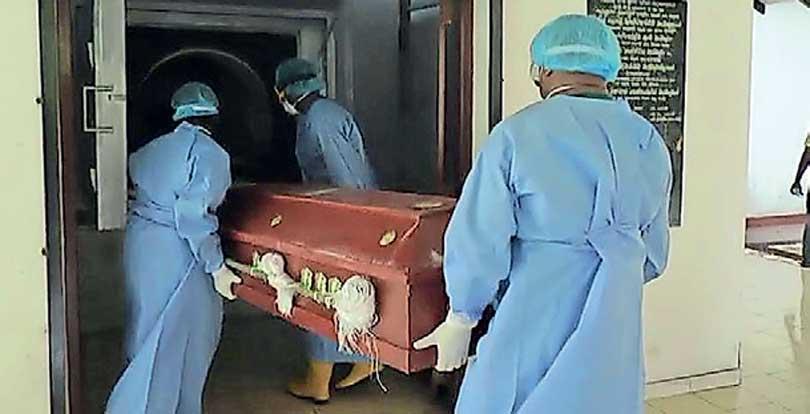
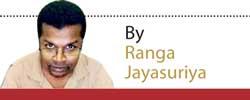 When your country is doing something totally different from what the rest of the world does, literally in exact opposition to the common sense practised and adopted by 194 countries in the world, things aren’t just right.
When your country is doing something totally different from what the rest of the world does, literally in exact opposition to the common sense practised and adopted by 194 countries in the world, things aren’t just right. 